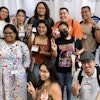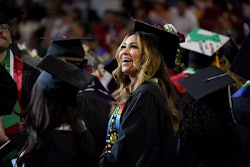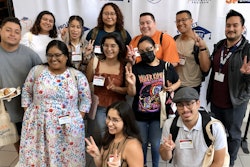Committed to reporting on undercovered communities, CNN’s Soledad O’Brien spoke to Diverse about 2009’s “Black in America” and “Latino in America” documentaries and other issues she’ll cover through the expanded “in America” series. The half Afro-Cuban, half Australian New Yorker says her mixed background has given her the ability to relate to many different communities. Listen here to hear more on her “in America” work.
1. Is there anything you regret or wish you had done differently in last year’s “in America” specials?
Oh gosh, always. … We did Latinos but didn’t look at all at Afro-Latinos. They’re absolutely missing from the documentary. My mom is Afro-Latino and so she even says ‘Oh so none of that in your documentary, huh?’ Understandably, it’s four hours and you’re looking at 51 million people. It’s not possible to get everything in. … The beauty of it is, I get to do it again because we will do more Latino stories, and we will do more “Black in America” stories. And we’ll expand even more what we consider to be the “in America” series. To me the mantra is we’ll go do stories that are undercovered.
2. What was the driving purpose behind “Latino in America”? Was it to explain this group, clarify stereotypes or bring forward issues?
I find a great story with a great character and I let them tell their story because it’s a documentary. There are a lot of unexplored stories in both the Black and Latino populations. I know that to be true. There are a lot of stories for gay Americans that never get told; certainly for Native Americans there are none [and] Asian-Americans. … My job is not to say ‘OK, this is a story for Asian-Americans.’ Not at all. My job is to find a great character and tell their story in a way that everybody is compelled, everybody is interested. It’s not about, ‘Well I’m here to explain this to this.’
3. In an article in Latina magazine you said education is the most pressing issue facing Black and Latino communities. Why do you believe this?
It’s the next front in civil rights. If you can deny someone a good education, you can deny them everything. You will get in the way of their earnings potential. You will determine whether their children are likely to be educated. You will determine whether they live in poverty. You will determine what job they are likely to have. You will determine their health care. … So I think that if we are not able to figure out how to make public education a real opportunity for all people who cannot send their children to private education, [if we are not able to] make public education safe and available and good quality, you will effectively condemn a large number of people, mostly brown and Black to being underclass.














